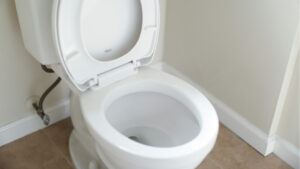When living with pets in Japan, the rules you must follow and the practical measures you should take vary widely depending on the type of housing and the terms of your lease. For foreigners in particular, differences in language and culture can make it easy to overlook important details, and an insufficient review of the contract or differences in daily habits may lead to disputes.
This article explains in detail the basic rules for rentals, condominiums, and detached houses; home adjustments that make living more comfortable; and Japan-specific customs and regulations. By the end, you should feel confident about starting a safe, comfortable life with your pet in Japan.
Contents
Basic Rules for Living with Pets in Japan
Pet-Friendly vs. No-Pet Rental Properties
In Japan, whether pets are allowed or prohibited is usually clearly stated in the rental contract. Tenants are legally obligated to follow these terms, and if you secretly keep a pet in a property where pets are prohibited, you may face serious legal and financial consequences.
For foreigners, it is especially important to carefully review the contract details. Even in pet-friendly properties, there are often specific conditions such as restrictions on the type of pet, the number of pets, or strict rules about restoring the property when you move out. Always check these details before signing, and ask the real estate agent if anything is unclear.
Key Clauses to Check in the Contract
Rental contracts may include clauses such as “No pets allowed,” “Immediate eviction if discovered,” or “Payment of penalty fees.” If the contract specifies forced eviction, you may be required to move out immediately once the violation is discovered.
Even if the contract only states a penalty fee, you will still be responsible for payment. The amount is often defined in the contract, and the common range is one to three months’ rent.
Restrictions on Number and Type of Pets
Even in “pet-friendly” properties, not all animals are permitted. Common conditions include:
- Only one small dog allowed
- Cats not permitted
- Pets must weigh under 10kg
If you exceed these restrictions, it is considered a breach of contract and may result in penalty fees or even eviction. Always confirm whether there are limits on species, number, or weight in the rental agreement.
Risks of Violating the Rules (Eviction, Penalties, etc.)
If you keep a pet without permission, you may face the following risks:
- Forced eviction: If specified in the contract, you may be ordered to leave immediately once discovered.
- Penalty fees: Often set in the contract, typically the equivalent of one to three months’ rent.
- Restoration costs: Charges for repairing scratched walls or floors, odor removal, and deep cleaning.
In “no-pet” properties, inspections for damage and odor tend to be stricter, and cleaning or repair costs can become very expensive.
In contrast, pet-friendly properties generally have more lenient standards, but tenants are still often required to pay for wall or floor repairs when moving out.
Condominium and Apartment Management Rules
In Japan’s condominiums and apartment complexes, detailed management rules are established to maintain a comfortable living environment for all residents. Pet ownership is also regulated by these rules, often set by the condominium association. Compared to rental properties, these rules tend to be stricter, and violations may result in warnings or penalties.
Pet Ownership Rules Set by the Management Association
Many condominium associations clearly state the types, sizes, and number of pets that can be kept. For example:
- Small dogs or cats are allowed, but usually limited to two
- Large dogs are prohibited
- Birds and fish are allowed, but reptiles are not
Since rules differ from one condominium to another, it is essential to carefully review the “management rules” and “detailed regulations” before moving in.
Rules for Moving Through Common Areas (Carrying, Using Carriers, etc.)
In shared spaces such as hallways, elevators, and lobbies, there are often strict rules for handling pets. Common requirements include:
- Carrying pets when passing through hallways or entrances
- Keeping pets inside a carrier bag in elevators
- No free walking or exercising pets in shared areas
These rules are designed to respect residents who dislike animals or suffer from allergies. Ignoring them may lead to warnings from the management association.
Consideration for Noise and Odors
Walls in Japanese apartments are often thin, making it easy for sounds and smells to travel between units. To avoid complaints, owners are expected to take measures such as:
- Training pets and using soundproof mats to reduce noise
- Using pet-specific deodorizing sprays or air purifiers
- Regular cleaning to prevent hair and odors from accumulating
Even if the management rules simply state “Do not disturb others,” this vague guideline can still result in demands for corrective action if neighbors complain. In Japan, the concept of “not causing inconvenience to others” is taken very seriously.
Detached Houses: Greater Freedom and Important Considerations
Compared to apartments or condominiums, detached houses in Japan offer more freedom when living with pets. There are usually fewer restrictions on the type or number of animals, and pets can enjoy more space both indoors and in the yard.
However, this freedom also comes with responsibilities — homeowners must be mindful of relationships with neighbors and local government regulations to avoid potential conflicts.
Common Disputes with Neighbors
Even in detached houses, complaints related to pets are not uncommon. Typical issues include:
- Dogs barking loudly in the early morning or late at night
- Pet hair or odors drifting into neighboring properties
- Pets escaping and dirtying nearby gardens or public roads
Since many people in Japan are particularly sensitive to noise and smells, good manners and consistent training are essential to prevent neighborhood disputes.
Rules for Using Gardens and Balconies
Many households allow pets to play in their yards or balconies, but the following precautions are important:
- Install fences or nets to prevent pets from escaping
- Always clean up waste promptly to avoid unpleasant odors reaching neighbors
- Train pets to minimize excessive barking and disruptive noise
Even when using private outdoor space, visibility from neighboring houses means that cleanliness and quietness are expected in order to maintain good community relations.
Local Ordinances and Required Notifications
Depending on the municipality, there may be specific ordinances or reporting requirements for pet ownership. Common examples include:
- Mandatory dog registration and annual rabies vaccinations (nationwide requirement)
- Microchip implantation and registration for cats and other animals (gradually expanding)
- Reporting obligations for multi-pet households (varies by municipality)
Because regulations differ between regions, it is important to confirm the local rules with your city or ward office before moving in or adopting a new pet.
Home Design Tips for Comfortable Living with Pets
Interior Layout Adjustments
In a pet-friendly home, the interior layout can greatly affect both comfort and safety. Even in limited spaces, thoughtful arrangements allow pets and humans to live together more harmoniously. In particular, three factors are key: dedicated spaces, flooring, and interior materials.
Designing a Dedicated Space for Pets
Dogs and cats need a place they can call their own. For example:
- Provide a crate or playpen for dogs to create a calming space
- Install a cat tower or shelves for cats to climb and rest on elevated spots
Setting up a toilet area away from main living pathways also helps maintain hygiene and control odors.
Non-Slip Flooring and Noise Reduction
Many Japanese homes use wooden flooring, which can be slippery for dogs and cats. Slippery surfaces put strain on joints and increase the risk of injury. To address this:
- Lay down anti-slip mats designed for pets
- Choose cushioned flooring materials to provide better grip and comfort
In addition, placing soundproof mats can prevent noise from running or footsteps from disturbing downstairs neighbors.
Easy-to-Clean Interior Materials
Living with pets means dealing with hair, odors, and stains on a daily basis. Choosing easy-to-clean materials is essential:
- Use wallpaper with deodorizing or scratch-resistant properties
- Select flooring that can be wiped clean with water
- Opt for sofas and curtains made from washable fabrics
These measures not only make cleaning easier but can also reduce restoration costs when moving out.
Safety Measures and Home Equipment
To live safely with pets in Japan, it is essential to take precautions within the home. Since many Japanese houses and apartments have limited space, unexpected accidents or troubles can occur easily. Here, we focus on three important aspects: windows, storage, and partitions.
Preventing Falls from Windows and Balconies
Many Japanese homes feature balconies or tall vertical windows, making fall accidents a real risk for pets. To prevent such incidents:
- Install lockable devices on window screens
- Set up nets or fences on balconies
- Avoid placing cat towers or perches directly near windows
These precautions are especially important in high-rise apartments, where even a small gap can lead to a dangerous fall.
Safe Storage to Prevent Accidental Ingestion
Pets may accidentally eat human food or small items, and compact Japanese kitchens require thoughtful storage solutions. Effective measures include:
- Store food and medicine in cupboards with doors or in the refrigerator
- Use lidded, stable trash bins that cannot be easily knocked over
- Keep small objects off the floor or low surfaces
These precautions help prevent accidental ingestion. In particular, foods common in Japanese cooking such as chocolate, onions, or leeks are toxic to pets and require extra care.
Using Pet Gates and Partitions
Japanese homes often have many separate rooms, making pet gates and partitions especially practical. They can be used to:
- Block off hazardous areas such as kitchens or entryways
- Separate pets temporarily when guests visit
- Control the movement range of small dogs or cats
These tools help prevent accidents while ensuring a more comfortable lifestyle. Nowadays, there are wooden gates that match Japanese-style interiors and slim tension-pole gates that save space, allowing safety measures without compromising home design.
Items to Improve Comfort
To make life more comfortable for both pets and humans, it is effective to introduce items suited to the home environment. Japanese houses and apartments are often compact and located close to neighbors, so the three key aspects—air, temperature, and noise—can greatly affect quality of life.
Air Purifiers and Deodorizing Products
Japanese homes are highly airtight, which means pet hair and odors can easily accumulate indoors. To maintain clean and comfortable air:
- Install an air purifier to remove pet hair and allergens
- Use pet-specific deodorizing sprays or odor-absorbing products
- Regularly clean and ventilate the living space
These measures are especially important in apartments or when hosting guests, making them essential items for many households.
Pet-Friendly Floor Heating and Cooling Mats
Japan has four distinct seasons, and extreme summer heat and winter cold pose major challenges for pets. Useful solutions include:
- Cooling mats or gel sheets for summer
- Floor heating or pet heaters for winter
Such items help regulate your pet’s body temperature more easily. Small dogs and short-haired cats, in particular, are sensitive to temperature changes, so appropriate seasonal measures are vital.
Soundproof and Noise-Reducing Curtains
To prevent barking or household noise from disturbing neighbors, soundproofing products can be very effective:
- Install thick, sound-blocking curtains on windows
- Lay soundproof sheets on walls or floors
- Use rugs and furniture to soften echoes
These adjustments help prevent noise-related disputes. In Japan, the cultural emphasis on “not causing inconvenience to others” makes soundproofing a valuable step for peace of mind.
Unique Aspects of Pet Ownership in Japan That Foreigners Should Know
Japanese Cultural Attitudes Toward Pets
In Japan, pets are not seen merely as companion animals but as important members of the family. Especially in urban areas, housing conditions and social norms shape the way people live with their pets, giving rise to distinct cultural characteristics. Here are some key aspects of this cultural background.
Treating Pets as Family Members
In Japan, it is increasingly common to treat dogs and cats as family rather than simply pets. Examples include:
- Taking commemorative photos at pet-exclusive photo studios
- Celebrating birthdays or anniversaries with special cakes and clothing
- Using travel plans or accommodations that welcome pets
These practices are especially popular among younger generations and in urban areas, reflecting the strong cultural trend of considering pets as family.
Limited Pet-Friendly Restaurants and Facilities
Compared to Western countries, Japan has relatively few pet-friendly restaurants and public facilities. Common restrictions include:
- Restaurants and cafés typically allow pets only on outdoor terrace seating
- Public transportation requires pets to be inside carriers or bags
- Department stores and supermarkets generally prohibit pets altogether
While this may feel inconvenient for foreigners, the priority in Japan is hygiene and consideration for other people.
Etiquette and Consideration for Others
Japanese society places great importance on not causing inconvenience to others. This cultural value extends to pet ownership as well, with expectations such as:
- Training pets to reduce excessive barking
- Cleaning up after pets in parks and on streets
- Keeping pets on a leash and preventing them from approaching strangers without permission
These are more social norms than laws, but ignoring them can lead to neighbor disputes. For foreigners, these standards may feel strict, but they are essential for a comfortable life with pets in Japan.
Registration Systems Required by Local Governments
In Japan, owning a pet often requires registration or notification with the local municipal office. These obligations are based on national laws or local ordinances, and failure to comply can result in penalties. Dog registration and vaccinations are mandatory nationwide, while regulations for cats and other animals are gradually expanding.
Mandatory Dog Registration and Rabies Vaccination
In Japan, all dogs over 91 days old must be registered with the local city or ward office. Owners receive a license tag that must be attached to the dog’s collar.
Additionally, annual rabies vaccinations are required by law, and once completed, an official vaccination tag is issued to certify compliance.
Cat Registration and the Spread of Microchip Requirements
Unlike dogs, cats are not yet subject to nationwide registration requirements. However, the use of microchips and registration systems is rapidly expanding. Since 2022, all dogs and cats sold by breeders and pet shops are required to have microchips, and owners must update the registration details when ownership changes.
Some municipalities have even introduced their own cat registration systems to help prevent strays and lost pets. Foreigners adopting a cat should confirm the rules in their local area.
Differences in Local Rules
Pet-related regulations vary depending on the municipality. Common examples include:
- Notification requirements for multi-pet households (keeping more than a certain number of dogs or cats)
- Restrictions on the types of animals allowed (banning certain “designated animals”)
- Rules for bringing pets into parks or public facilities
Even within the same prefecture, rules can differ between municipalities. Therefore, before moving or adopting a new pet, it is essential to check your local government’s website or consult directly with the municipal office.
Contracts and Procedures Foreigners Should Pay Attention To
For foreigners living with pets in Japan, rental contracts and related procedures often present unique challenges. Language barriers, along with pet-related conditions, can affect negotiations and costs. Here are three important points to keep in mind when signing a lease.
Negotiating Lease Terms
Since pet-friendly rental properties are limited in Japan, negotiations at the time of contract signing are common. To improve your chances:
- Clearly state the type and number of pets you plan to keep
- Explain the measures you will take to control noise and odors
- Show willingness to cooperate with restoration obligations
Demonstrating responsibility can help landlords and real estate agents feel more comfortable. Importantly, make sure that any agreements reached are recorded in the written contract, not just discussed verbally.
Possible Increase in Security Deposit or Guarantor Requirements
In pet-friendly rentals, it is common for landlords to require a higher security deposit. Instead of the usual one month’s rent, two to three months may be requested if you own pets.
Foreign tenants may also be asked to provide a Japanese guarantor, and in some cases, conditions may become stricter because of pet ownership. Understanding these additional costs in advance will help you prepare a realistic budget.
Preventing Restoration Disputes When Moving Out
Under Japanese rental contracts, tenants are generally obligated to restore the property to its original condition when moving out. With pets, this often means additional charges for scratched walls, stained floors, or odor removal. To avoid disputes:
- Take photos of the property’s condition at the time of moving in
- Perform regular cleaning and repair any pet-related damage
- Carefully review the restoration clauses in the lease agreement
Because misunderstandings can easily arise due to language differences, foreigners are advised to work with real estate agencies that provide English-language support. This can make the process smoother and reduce the risk of unexpected costs.
Living Safely with Pets in Japan
To live with pets in Japan, you must pay close attention to housing regulations, local government rules, and consideration for your neighbors.
- For rental properties, carefully review contract clauses on pet permissions, penalties, and restoration obligations
- In condominiums, follow the management association’s rules and restrictions for common areas
- In detached houses, maintain good relations with neighbors and comply with municipal ordinances
- Introduce appropriate housing equipment and items to improve comfort
- Understand the uniquely Japanese cultural value of “not causing inconvenience to others”
By keeping these points in mind, foreigners can also enjoy a safe and comfortable pet life in Japan. Treasuring your pet as a family member while respecting Japanese social rules is the first step toward a long and happy life together.












